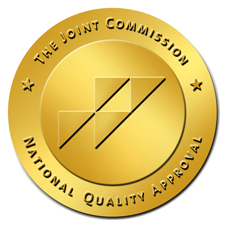Leading the Region in Quality Stroke Care

Primary stroke center designation
Our Clinton Township hospital was the first in the region to receive designation as a Primary Stroke Center by The Joint Commission. This designation is awarded to hospitals that have demonstrated a track record of following national standards and guidelines that can significantly improve outcomes for stroke patients.
Our program reinforces the American Stroke Association’s standard of 60 minutes or less “door-to-needle” time in administering the clot-busting drug known as IV t-PA. This drug “is only is only effective for approximately four and a half hours from the onset of stroke symptoms, so it is critical that we make sure our patients know to call 911 at the first sign of a stroke,” says Wilma Agnello-Dimitrijevic,M.D., Stroke Program Medical Director. Henry Ford Macomb administers IV t-PA more than twice the average hospital nationwide. The goal is to administer this clot-busting agent to all eligible patients, which means arriving at the hospital as soon as possible is essential. The sooner the drug is administered, the better the outcome.
Additionally, the hospital has targeted resources to educate and train the staff on how to treat stoke symptoms, from EMS technicians all the way through the process to our rehabilitation specialists. We have a dedicated stroke response team on site 24/7 to treat patients, as well as dedicated, specially trained inpatient unit nurses, physician leadership and rehabilitation therapists.
“Get with the guidelines” program - gold metal quality award
Henry Ford Macomb’s stroke program also has received the Gold Medal quality award from the American Stroke Association’s – “Get With the Guidelines” program, one of the highest level quality awards attainable through the American Stroke Association.
The hospital’s stroke team has implemented the following, which has helped to achieve such high quality stroke care:
- Rapid triage of potential stroke patients in the ER. Administration of the clot-busting drug IV t-PA to appropriate stroke patients more than twice the national average.
- Daily team meetings. Everyone caring for stroke patients – physicians, nurses, rehabilitation staff, dietary, pastoral care, social workers and discharge planners – meets about each patient daily to assess the person’s condition and decide the next steps.
- Staff education. All nurses on the 20-bed stroke unit are specially trained in stroke care. Their training includes the recognition of the signs and symptoms of stroke, and possible deterioration so additional evaluation and care can be offered.
- On-site neurologist. An on-staff medical director of the stroke program who takes a hands-on approach in leading a team of neurology specialists providing care to stroke patients.
- Nurse practitioner. This nurse specializes in stroke care. Their job is to ensure the continuity of care that is so important for stroke patients.
- Patient education. Patients and families are given extensive education in areas such as smoking cessation to prevent complications or future strokes.
- System resources. Access to more specialized treatment for the most complex cases is just a phone call away at Henry Ford Hospital in Detroit.
.svg?iar=0&hash=F6049510E33E4E6D8196C26CCC0A64A4)

/hfh-logo-main--white.svg?iar=0&hash=ED491CBFADFB7670FAE94559C98D7798)